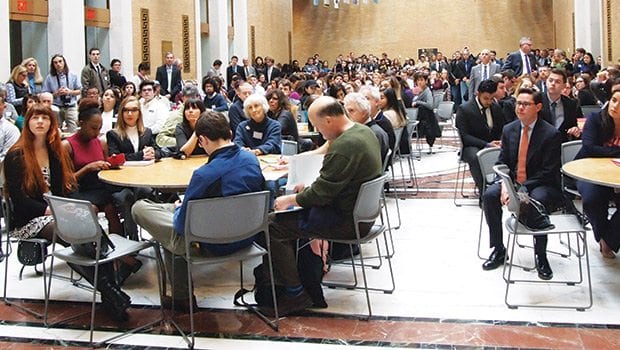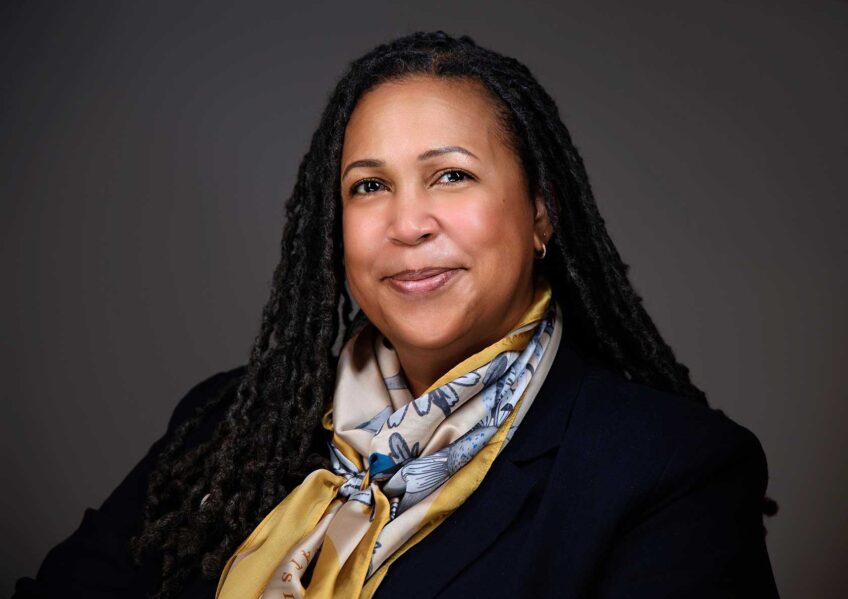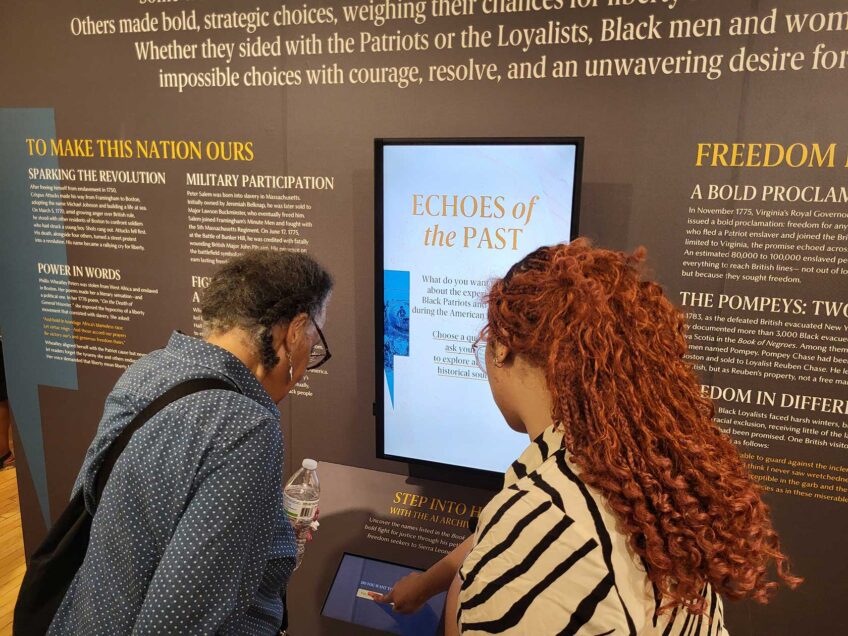
Amy Blanchette was scraping by, relying on soup kitchens and a $9 per hour wage from a curtain store to keep her and her son going. She had escaped an abusive marriage and weathered a period of homelessness, and now struggled to get out of bare-survival mode. Wanting a better life for her son and to end their reliance on public services, she applied to Bristol Community College.
Now she’s slated to transfer to University of Massachusetts-Dartmouth and intends to continue on to a Ph.D., with the goal of teaching English at a community college. She’s hoping she can afford it.

Amy Blanchette
Blanchette was one of many lifted up by public higher education and weighed down by the price tag that comes with it who shared stories during Public Higher Education Network of Massachusetts’s (PHENOM) annual advocacy day at the State House last week.
“Education…was everything. It felt like I was given a second chance to succeed at life,” Blanchette said. “When you’re living in poverty — you’re just surviving, that’s it. There isn’t hope or room for much else. All you need is someone who believes in you, and, to be honest, some financial aid.”
While public institutions are intended to make degrees accessible to those without the means to spend tens of thousands in private school tuition, current and former students, economic analysts and education activists say that Massachusetts’ public institutions are increasingly unaffordable. Since 2001, the state has cut financial support for its higher ed institutions. At the same time, enrollment has been growing, exacerbating the per-student reduction. The impact is that per-student funds are slashed by 31 percent, or about $3,000 per student, according to PHENOM.
Many institutions have passed some of the costs onto students. As such, many students leave burdened by five-figure debt and/or work multiple jobs while enrolled to make ends meet. A MassBudget report found that the number of students taking out loans in order to attend four-year public college in the state increased by 39 percent since 2001 and their cumulative amount of debt was 55 percent higher.
For Blanchette, affording college means working four jobs — three at Bristol and one as a research analyst for MIT and YMCA Southcoast. Because she cannot afford a babysitter, her twelve-year-old son hangs out at college clubs or classes after school and during school vacations. Some days she leaves home at 7:30 a.m. and does not return until 9 p.m., she said.
It became clear from stories shared at PHENOM’s advocacy event that she was far from alone. Among the speakers was Erika Civitarese, a senior communications student at U-Mass Amherst. Civitarese said she has worked 25 hours per week since she was 15, received scholarships, work-study and Pell grants, yet still expects to graduate with $30,000 in student loan debt. Civitarese says she does not know how her family will be able to pay it off or afford her younger sister’s education.
State Rep. Natalie Higgins, who attended graduate school at a private instituion after attending UMass, spoke of how her own student debt shapes her life choices.
“I have over $100,000 in debt. That makes every decision that I make a little bit —or a lot — harder,” Higgins said. “I have to think how that $450 [per month] I’m paying on my student loans is impacting everything else that I’m doing.”
PHENOM is calling for the state to fully satisfy the budget requests from its public universities, state colleges and UMass system, as well as fully fund its collective bargaining agreements and fund more tuition grants and scholarships.
Why non-students should care
The problem of public education debt is not just one for students but affects the wider Massachusetts economy. Advocates say state public institutions largely educate state residents, who then become more likely to stay, work and live locally. This means Massachusetts keeps its investment and gains a more educated workforce. According to information distributed by PHENOM, more than 90 percent of state university students are from Massachusetts and more than 85 percent of state university graduates stay in the state to work and raise a family.
Matt Patton of Fair Shot For All said that in total, Massachusetts residents pay about $234 million each month in student loan debt — representing a major draining of spending money that could better stimulate the economy if distributed among more sectors, such as via restaurant and store patronage, home purchases or other transactions, he said.
Zac Bears, executive director of PHENOM, said civic engagement also is impacted by the time-cost of being economically burdened. Those who have to work multiple jobs or longer workweeks have little time available to be civically involved or advocate for themselves, he said.
“If people can’t are working three to four jobs, they can’t afford to go out to their city council meeting, their school committee meeting,” Bears said.
Legislative action
To fully meet the budget requests and its share of collective bargaining agreement costs for its public higher ed institutions, the state would have distribute a total of roughtly $270 million to its nine universities; $555 million in total for its five UMass campuses and about $290 million in total for its 15 community colleges, according to PHENOM.
Advocates also call for more funding to the state’s primary need-based financial aid program, MASSGrant, more scholarships and passage of a Finish Line Grant bill, which would provide one year free of tuition and fees at any state university, UMass campus or community college. To be eligible, a student would have to have completed their first year, attained a 2.0 or higher GPA and have a family income below $135,692.
Other bills would require in-state tuition rates for undocumented immigrant students and require more equitable pay for adjunct professors and access to the same retirement and health care benefits as full-time faculty.
During the advocacy day, Barbara Madeloni, president of the Massachusetts Teacher Association, and Joseph Ramsey, PHENOM organizer at UMass Boston, rejected the narrative that there is a need for public education austerity and efficiency finding, stating that the state is sufficiently wealthy but that it does not tap into its resources.
“We have great plenty that is in the hands of way too few,” Ramsey said. “By the last statistics we have, Massachusetts ranked 45th in the nation when you take the percent of the total commonwealth dedicated to public education. That’s a shameful number.”






